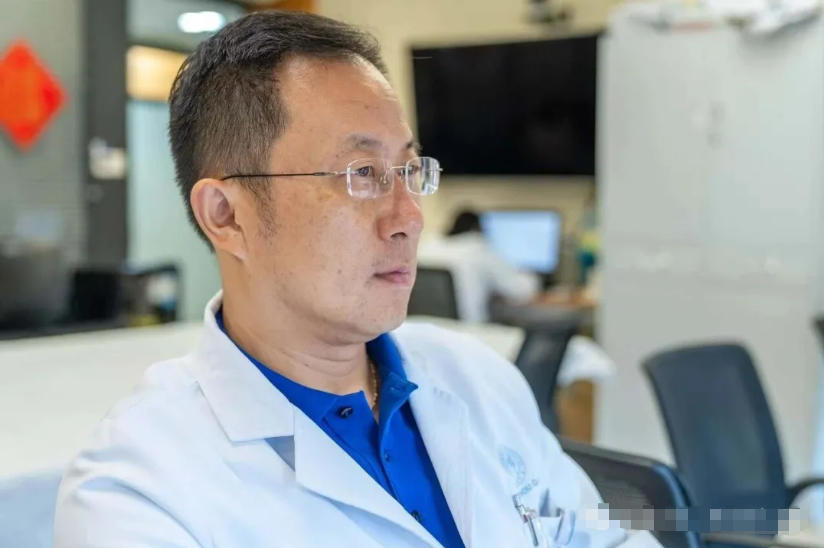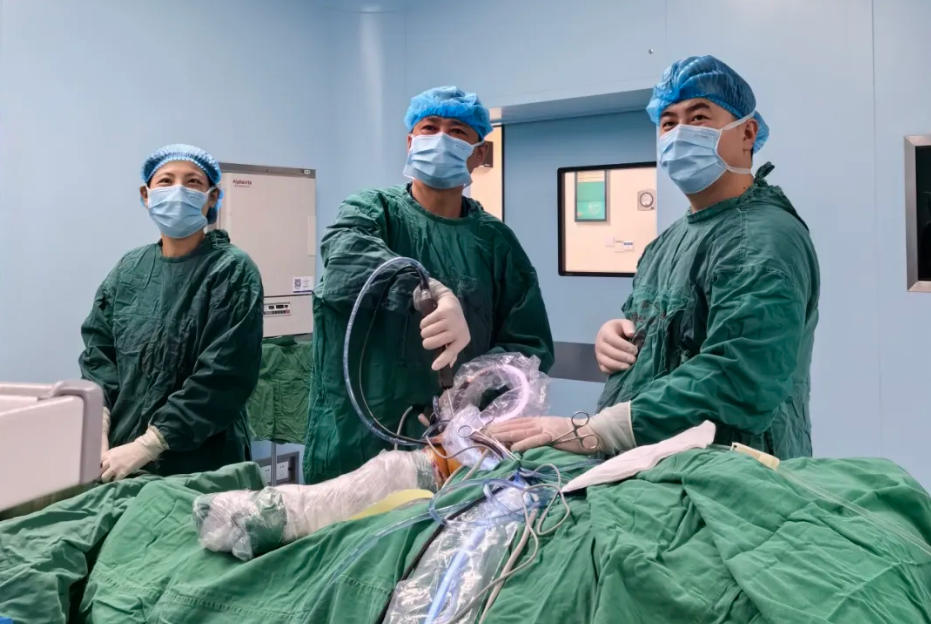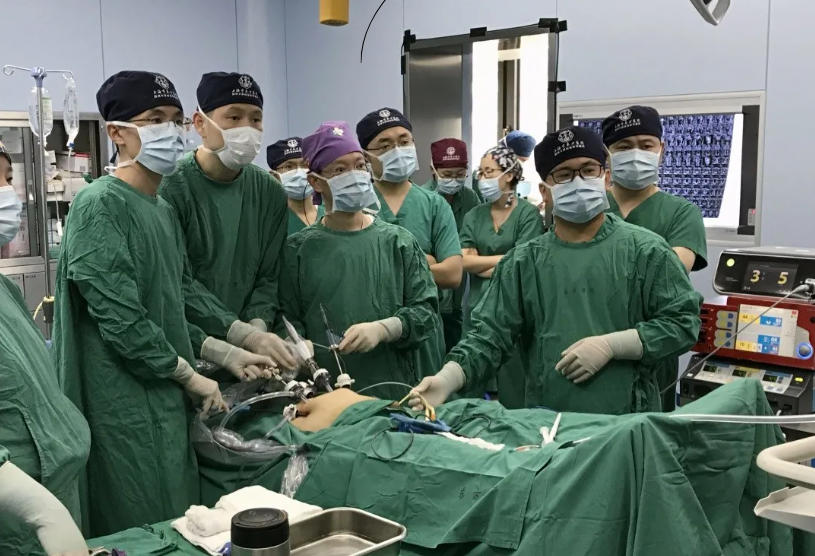Update time:2025-10-19Visits:2618

Dr. Zheng Junhua | Full Professor of Urology, Secretary of the Party Committee of Renji Hospital
Introduction
In the vast field of medicine, some individuals are driven by a clear sense of destiny, their lives dedicated to the mission of healing. They begin as skilled practitioners, bringing relief and hope to patients. With time, they evolve into leaders, guiding their teams through complex challenges and upholding the legacy of their institutions. Dr. Zheng Junhua is one such figure.
For over four decades, Dr. Zheng has been a pioneering force in urology, unraveling the mysteries of the kidney. His groundbreaking work in kidney transplantation and organ preservation has been transformative. He developed China’s first multi-organ preservation solution, a critical innovation that extended the viability of organs outside the body, reduced post-transplant rejection, and significantly increased surgical success rates. His forward-thinking research into transplant rejection, hormonal impacts, and patient quality of life opened new avenues of hope. Dr. Zheng has not only witnessed but also shaped three major eras of medical advancement: open surgery, minimally invasive techniques, and now, precision medicine. Today, standing at the intersection of clinical practice and scientific inquiry, he remains both a healer and a relentless explorer, driving innovation in surgical technology and translational medicine.
A Healer’s Calling: Forged in Discipline
“My father was a soldier, severely wounded in battle during World War II and the Korean War. In that life-or-death moment, he saw firsthand both the fragility of life and the heroism of those who save it. That was my earliest inspiration to pursue medicine.”
Born in a military hospital and raised on an army base, Zheng Junhua’s character was shaped by discipline, resilience, and a profound sense of duty. As a brilliant student, he earned a place at one of China’s most prestigious high schools, an institution known for producing numerous national leaders and scientific pioneers.
“Our school motto was essentially ‘Study for the Rise of China,’” Zheng recalls. “We were inspired by stories of national scientific heroes, which ignited a passion in all of us to contribute to something greater than ourselves.” This holistic education fostered a deep curiosity and broad interests. While many peers pursued science or engineering at top universities, Zheng chose military medicine, guided by this childhood inspiration and a sense of fate.
“A top military medical university accepted me early; its standards were on par with institutions like Harvard or MIT. My family believed it was the perfect path. Though I didn’t fully grasp what medicine entailed then, I answered the call.”
Awakening to the Depths of Medicine
Initially drawn to physics and literature, Zheng found himself captivated by the profound complexities of life sciences—anatomy, physiology, and pathology. “This was nothing like high school. The smell of formaldehyde was overwhelming at first, and long hours at the microscope made me dizzy. But as I delved deeper, I marveled at the intricate world of cells. In that moment, my reverence for medicine was born, and my journey truly began.”
During his university years, he witnessed the rapid modernization of medical education and recognized the gap between Chinese practices and global standards. “The master physicians on staff taught me that medicine was not just about maintaining health; it was about confronting immense challenges.” In China’s early era of reform, medical resources were scarce and theories often lagged behind the West. For Zheng, these obstacles were not deterrents but opportunities.
“Through my clinical rotations, I confronted end-stage organ failure and critical emergencies. Each case deepened my understanding of medicine’s transformative power.” After graduation, Shanghai Changzheng Hospital became his training ground. Observing his mentors—during bedside rounds and complex case discussions—revealed the essence of exceptional clinical reasoning: a blend of profound expertise, practical wisdom, and unwavering ethics.
As the inventor of China’s first multi-organ preservation solution, a pioneer of minimally invasive urological surgery in Shanghai, and a leader in kidney cancer research, Dr. Zheng Junhua’s career has been defined by turning challenges into breakthroughs.
Since 1983, his 41-year career in urology has paralleled China’s remarkable transformation. He has witnessed the nation’s shift from economic scarcity to a global powerhouse and has been at the forefront of the explosive growth in Chinese medicine.
Reflecting on his doctoral research, Zheng recalls a time when organ preservation was a field with no established roadmap. “The quality of organ preservation was critical, but there were no systematic textbooks on the subject, not even internationally.” He immersed himself in global medical literature, engaging in a dialogue with the field’s pioneers. Long nights spent poring over journals and research papers led to the insights that would fuel his groundbreaking work.
The maturation of organ transplantation created a virtuous cycle, driving advancements in pathology, imaging, and critical care medicine. “Later, I became involved in laparoscopic surgery,” Zheng explains. “I witnessed technology continuously iterate and participated in the dawn of the minimally invasive era.” This shift fundamentally transformed surgery, and Dr. Zheng was a key player. In 2007, he performed Shanghai’s first laparoscopic radical prostatectomy, cementing his status as a regional leader.
Looking ahead, Zheng is a firm believer in the future of precision medicine. “Artificial intelligence and new materials will lead the next wave of surgical advancement,” he predicts. “We will see highly precise procedures performed by robotic systems.”
For Dr. Zheng, this technological evolution is about more than just new tools; it represents a profound shift in medical philosophy. It promises a future with less human error, safer procedures, and more effective treatments. “To be a physician in an era of such relentless innovation and boundless possibility,” he says, “is an incredible fortune.”

Leading Renji: The Transformation from Clinician to Strategist
“Hospital management isn’t just about pursuing cutting-edge technology; it’s fundamentally about embodying humanistic care,” asserts Dr. Zheng Junhua. He believes that compassion is the lifeblood of a hospital, while meticulous management provides the fertile ground for it to flourish. Building on its 180-year legacy of excellence, Renji Hospital has continuously evolved its management philosophy—from traditional methods to digital integration, and now to a model of truly patient-centric care. As the old saying goes, “Winning a person’s heart is more valuable than commanding an army.” Through nearly two centuries of change, Renji has remained steadfast in its founding principle: “Patients First.”
Dr. Zheng’s own journey mirrors this institutional evolution, from a dedicated physician to a skilled administrator. His clinical excellence naturally led to increasing leadership responsibilities, with previous roles including Vice President at Shanghai’s Tenth People’s Hospital and Shanghai First People’s Hospital.
Stepping into leadership demanded more than managerial skill; it required a profound sense of mission. During the COVID-19 pandemic, Dr. Zheng led the first Shanghai medical aid team to Wuhan, witnessing firsthand the relentless dedication of healthcare workers on the front lines. In the years that followed, he traveled extensively, coordinating support and safeguarding public health across the region.
In 2021, Dr. Zheng was appointed Party Secretary of Renji Hospital, the institution’s top leadership role.
“Renji is a venerable institution with a 180-year history, representing the very roots of modern medicine in China,” he says. “When I was appointed, I felt the immense weight of this responsibility. Leading an institution with such a glorious tradition presents unique challenges.”
Amid the seismic shifts in healthcare, Dr. Zheng and the Renji leadership team have spearheaded pragmatic strategies for growth. In an era of hyper-specialization and explosive knowledge growth, their focus is on how Renji can lead in innovation while honoring its traditions. A core task has been formulating and implementing the hospital’s “14th Five-Year Plan,” a strategic roadmap for the future.
“The development of ‘clinical clusters’ is critical for us to enter a new phase,” Zheng emphasizes. “We are moving away from the model of the jack-of-all-trades physician. Instead, we encourage deep specialization and expertise.”
Dr. Zheng believes modern medicine requires a new approach. Renji’s future hinges on advancing its key disciplines, cultivating top talent, and enhancing the core competitiveness of its departments. The hospital is building models focused on specialized disease centers, the integration of medicine, teaching, and research, and the translation of research into clinical practice. This ensures each department has unique strengths, with the “clinical clusters” model encouraging physicians to become profound experts in their fields.
Modern medicine demands collaboration. For instance, critical care now requires multidisciplinary teams to create comprehensive treatment plans. Renji’s Cancer Center is a prime example, managing not just treatment but the entire patient continuum. Improving survival rates and quality of life requires cutting-edge technology, meticulous management, and compassionate follow-up—humanistic care made tangible.
As a historic institution, Renji also embraces a broader national role. Guided by strategies like the Yangtze River Delta integration and the Belt and Road Initiative, its staff represent not only Renji and Shanghai but the image of the nation. Over 200 of Renji’s physicians are on long-term assignments in other regions or international aid missions.
“Recently, our President, Dr. Xia Qiang, achieved tremendous success with a pediatric liver transplant program in Malaysia, earning high acclaim,” Dr. Zheng notes. “This is a highlight of our effort to export medical expertise. Our goal is not just to adopt advanced concepts from abroad, but to innovate based on our own practice, create societal value, and demonstrate the strength of our medical brand.”
As Party Secretary, Dr. Zheng understands his mission extends far beyond clinical services. It encompasses driving medical innovation and guiding the hospital to adapt to and lead the trends of the future.
Future Light: Cultivating the Next Generation of Leaders
In Dr. Zheng’s vision, Renji Hospital is not just a place for healing, but a crucible for nurturing talent. He harbors profound insights into talent development, firmly believing that a successful medical team relies on a continuous succession of skilled and compassionate individuals.
The ancient philosopher Lao Tzu said, “I desire not to desire, and the people will become simple of their own accord.” This wisdom encapsulates Dr. Zheng’s modern management philosophy. A good leader, he believes, must shift their focus from their own past expertise to helping young people discover their direction and realize their dreams. This requires restraint and a principle of “governing through non-interference”—empowering, not micromanaging.
“Management is not about control; it’s about liberation. Young people need platforms,” he states. To put this into practice, Dr. Zheng established the “Model Worker Innovation Studio for Kidney Cancer Comprehensive Diagnosis and Treatment.” This initiative serves not only to pass on the spirit of dedication but also to distill his experience for the hospital’s benefit. Most importantly, it provides a stage for young talent to shine.
“Honors affirm past work, but the future is what truly matters,” he explains. “In our Studio, we pass on the spirit of dedication, but we are more committed to sparking the creativity of the younger generation. My role is simply to give them the space to spread their wings.”
As a teaching hospital with a strong research tradition, Renji has distinct advantages in talent cultivation. Dr. Zheng’s Studio further promotes the development of talent pipelines and the nurturing of the next generation of medical professionals.

“We are witnessing innovations in medical education; the surgical broadcasting theater has become a new tool for enhancing skills,” Zheng observes. “Young doctors today have broader knowledge and stronger capabilities. We must guide them to become the mainstays of medical development.” Dr. Zheng views the medical profession as a relay race, where each generation builds on the legacy of the past and paves the way for the next. He firmly believes that team spirit is the ultimate expression of shared goals.
“In cultivating talent for kidney cancer treatment, we focus on solving the challenges of early diagnosis and exploring the mechanisms of drug resistance and metastasis. We’ve delved into spatial cellular omics to do this. But more importantly, we must cultivate students to be both virtuous and highly skilled.” He knows that young people must face trials and setbacks to find their path. “When they stumble, they must be brave enough to take the first step again. Throughout their journey, I will always be there to offer support and encouragement.”
Today, many of Dr. Zheng’s students have become mentors themselves, leading their own research teams. He feels immense gratification when he sees them making breakthroughs and contributing to the nation’s medical cause.
“Through diligent cultivation, we build teams capable of independent thought that will lead the next chapter of medicine,” Dr. Zheng concludes. In his view, a great medical brand relies not only on excellent technology but, more importantly, on the inheritance and cohesion of medical ethics and professional conduct. In this cycle of mentorship and growth, every contribution propels the entire medical endeavor forward.
Editor: Chen Qing @ ShanghaiDoctor.cn
If you'd like to contact Doctor Zheng, please be free to let us know at chenqing@ShanghaiDoctor.cn.
Note: Chinese Sources from “The Path of Benevolent Medicine” which was published in 2024. It records 90 important medical figures in the history of Renji Hospital. Yewen Renyi (ShanghaiDoctor.cn) team was one of the major writers of the book and is authorized by Renji hospital to create English version on the website of ShanghaiDoctor.cn
Hospital: Renji Hospital, Shanghai Jiao Tong University School of Medicine
Dr. Zhou Qianjun | “Sculpting Life in the Chest” – A Portrait” – A Portrait
Dr. Cai Junfeng | Guarding Bone and Joint Health, Improving Quality of Life
Dr. Xu Xiaosheng|The Gentle Resilience of a Male Gynecologist
Dr. Shi Hongyu | A Cardiologist with Precision and Compassion
Dr. Zhang Guiyun|The Inspiring Path of a Lifesaving Physician
Dr. Chen Bin | Building the Future of ENT Surgery at Lingang,Shanghai
Prof. Zhang Baigen | The Oral History of China’s Vascular Surgery

Dr. Zhou Qianjun | “Sculpting Life in the Chest” – A Portrait” – A Portrait

Dr. Cai Junfeng | Guarding Bone and Joint Health, Improving Quality of Life

Dr. Cui Xingang | The Medical Dream of a Shanghai Urologist

Dr. Xu Xiaosheng|The Gentle Resilience of a Male Gynecologist

Dr. Shi Hongyu | A Cardiologist with Precision and Compassion

Dr. Zhang Guiyun|The Inspiring Path of a Lifesaving Physician

Dr. Jiang Hong | Bringing Hope to Vascular Frontiers

Dr. Huang Jia | A Journey of Healing "Breath"

Dr. Chen Bin | Building the Future of ENT Surgery at Lingang,Shanghai

Prof. Zhang Baigen | The Oral History of China’s Vascular Surgery